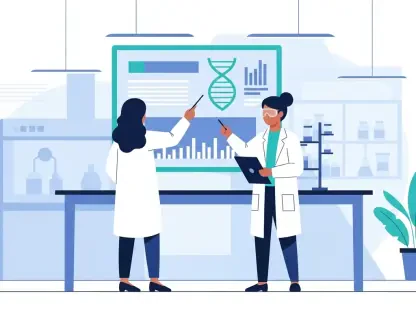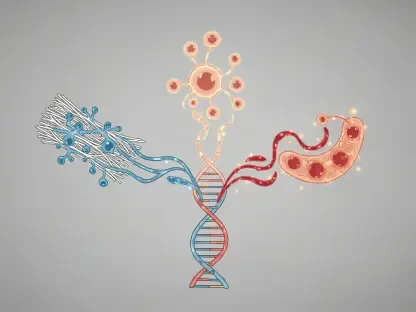There is no question that obesity is one of the most common healthcare problems plaguing the modern world.
According to the National Health and Nutrition Examination Survey (NHANES), 42.4% of Americans suffer from obesity, while 30.7% are on their way to becoming obese. Moreover, approximately 1 in 11 American adults now suffer from severe obesity, a condition associated with multiple health problems – type 2 diabetes, high blood pressure, stroke, heart disease and other cardiovascular conditions, renal disease, and cancers. People struggling with obesity face numerous risks and their life span is considerably reduced compared to those in a healthy weight range.
The problem, however, is not limited to the US. According to research published by the World Health Organization (WHO), more than 1 billion people around the world are now struggling to overcome obesity. It is particularly harder for developing countries, where not only obesity is common, but also malnutrition. Nowadays, it is actually common to find malnutrition and obesity co-existing and affecting the same communities, making it even harder to find effective solutions to these issues. Moreover, these conditions also have an important financial impact. With no solution in sight, the global costs of the problems associated with obesity are likely to peak at US$ 3 trillion per year by 2030, according to the WHO.
Considering all these facts, it becomes obvious that finding effective solutions to deal with obesity is now vital. Biopharmaceutical companies are investing in the development of new weight-loss drugs, while governments around the world are also implementing different strategies to fight against the condition. It remains to be seen what if any, breakthroughs will prove successful in the future.
Pfizer Advances Its Plans for Danuglipron
Pfizer, one of the world’s leading biopharmaceutical companies, advances its plans to develop a once-daily does of the weight loss drug Danuglipron. Although the company joined the weight-loss pill market later than rivals like Novo and Eli Lilly, it seems to have high hopes for its new drug. Danuglipron has already undergone a limited clinical trial which helped the company establish that it should move on with a single daily dose version of the drug. However, new research is needed in order to decide the optimal dosage of the pill, and numerous tests are also expected before the pill can actually get FDA approval and appear on the market.
Millions of Americans Are on Diabetes and Obesity Drugs
One out of every eight adults in the US has already given a shot to the new diabetes and obesity medicines, like Ozempic and Zepbound. These drugs are part of a group of medicines that is now booming, showing just how much they have caught on the American market.
A recent survey by KFF, a health research group, demonstrates that about half of the people who have tried these medicines are still taking them. If we extrapolate the data from this study and apply it to all US adults, it would lead to the conclusion that approximately 30 million Americans have already used these medicines.
Mounjaro and Zepbound Outperform Ozempic and Wegovy
According to new research in JAMA Internal Medicine, tirzepatide, which Eli Lilly uses in Mounjaro and Zepbound, helps people lose more weight than semaglutide, which Novo Nordisk uses in Ozempic and Wegovy. This study is the first to compare these two popular weight loss medicines. Zepbound was approved for weight loss in late 2023, and it seems to work better than Wegovy. People taking the highest dose of Zepbound lost about 21% of their body weight over 72 weeks. In contrast, those on Wegovy lost around 15% after 68 weeks.
Pills Overtake Injectable Medicines
Pfizer is not alone in working to develop an effective pill to combat obesity. In fact, Novo Nordisk has already come up with a new pill called amycretin. A small study has demonstrated it helped overweight people drop 13% of their weight in just three months. One expert said this might be one of the best results for any weight loss drug so far.
Unlike the company’s other drug, Wegovy, this pill works on two hormones—GLP-1 and amylin—to control hunger and blood sugar. Also, it can be taken orally, not as a shot. Novo Nordisk hopes this drug will take advantage of the commercial success Wegovy has enjoyed so far, and help expand its business.
Obesity Treatments Could Become Cheaper
New obesity treatments are expected to become available in the next few years, and orforglipron is one of them. This is an investigational nonpeptide GLP-1 receptor agonist, and its use has been associated with significant weight loss in a phase 2 clinical trial. Furthermore, orforglipron is easier to use and produce, and it will probably also be cheaper than existing treatments. Like amycretin, it was developed using the framework of the current GLP-1 receptor agonists, which are key components of modern obesity treatments. And the similarities do not stop there! Both orforglipron and amycretin will be available as pills, making their administration easier.
Why Developing Weight-loss Drugs is More Important Than Ever
More and more people around the world are struggling to overcome obesity, and this creates a significant market opportunity for biopharmaceutical companies. With millions of people suffering, the potential customer base is enormous, making it a lucrative opportunity for those who can provide the solution.
Moreover, this high demand for effective weight loss treatments means these companies can make substantial profits if their medicines are successful. To sum up, the economic incentives are strong when developing weight-loss drugs, especially if the treatments prove to be safe and effective.
Profits aside, it is also important to note that obesity-related diseases are becoming a major burden for national healthcare systems everywhere. Furthermore, people are now suffering and dying from health conditions strongly associated with obesity, like cardiovascular diseases and cancers. By developing effective treatments for the underlying cause, biopharmaceutical companies could also help limit the effects of these diseases. All things considered, it becomes obvious that developing weight-loss drugs is now more important than ever.









